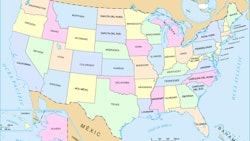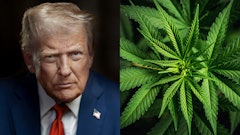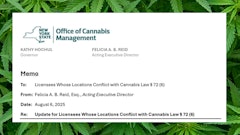Editor's Note: We here at CBT have anxiously been awaiting the verdict on this. Between the defense of medical marijuana being legal and the defense's argument that the government "enforces marijuana law unevenly, which violates the constitutional guarantee of equal protection," this will be an interesting case to watch.  Even if it won't change the classification of marijuana altogether, it is focusing attention on discrepancies and societal issues our nation is facing, with some states incarcerating people for marijuana possession, while others charge only a fine or do nothing (where marijuana possession is legal).Â
The decision to re-examine the classification comes after a recent criminal case where attorneys for alleged marijuana growers argued the government enforces marijuana law unevenly, which violates the constitutional guarantee of equal protection.
Attorneys in California last week delivered their final arguments in a court hearing that could pose an unprecedented challenge to the official classification of marijuana as a Schedule I controlled substance in the United States – one that would complicate federal justifications for prohibition amid a wave of cannabis liberalization efforts across the country.
The hearing is part of US v. Schweder et al., in which nine defendants face criminal charges in the Eastern District of California for growing marijuana in the state's Shasta-Trinity National Forest. Last year, defense attorneys Zenia Gilg and Heather Burke argued that their clients are innocent of any crime because there is no rational basis for the Drug Enforcement Administration to apply the Schedule I standard that a drug must have "no currently accepted medical use in treatment in the United States" to cannabis. After all, medical marijuana is now legal under state law in 23 states and DC.



























